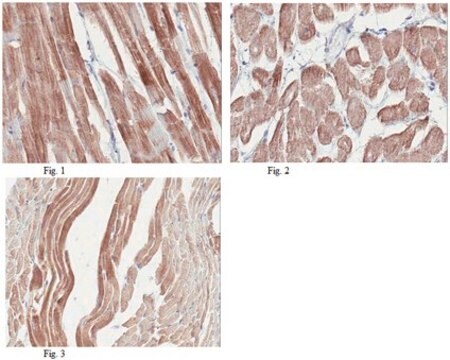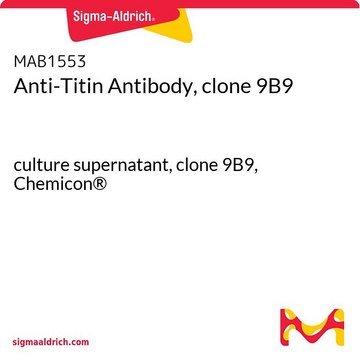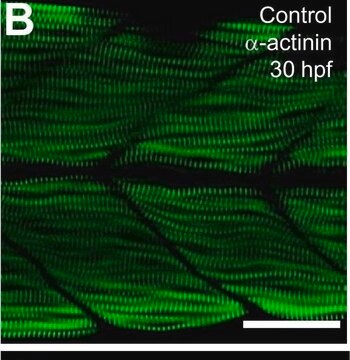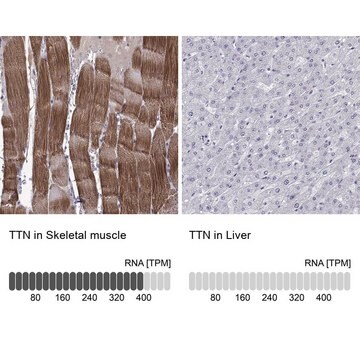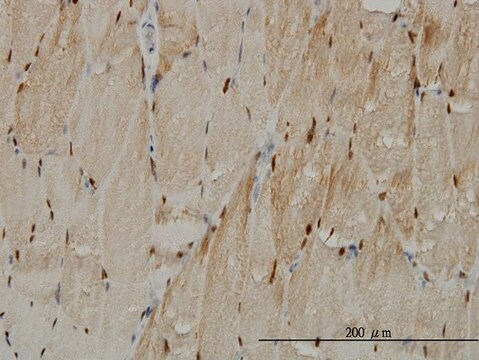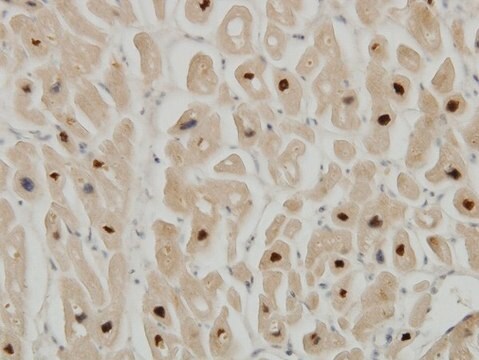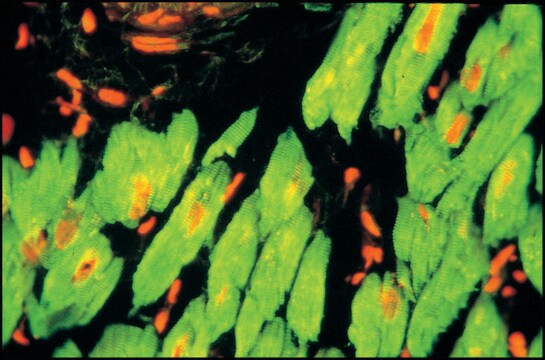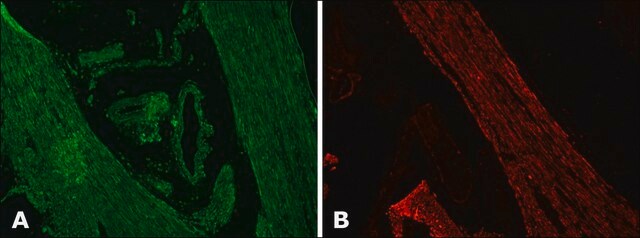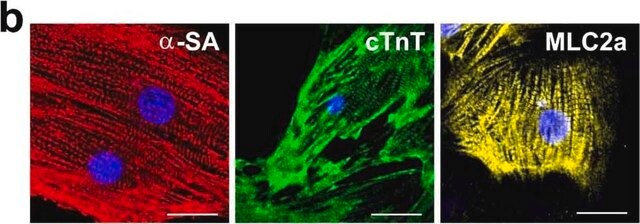T9030
Monoclonal Anti-Titin antibody produced in mouse
clone T11, ascites fluid
Synonyme(s) :
Anti-CMD1G, Anti-CMH9, Anti-CMPD4, Anti-EOMFC, Anti-HMERF, Anti-LGMD2J, Anti-LGMDR10, Anti-MYLK5, Anti-SALMY, Anti-TMD
About This Item
Produits recommandés
Source biologique
mouse
Niveau de qualité
Conjugué
unconjugated
Forme d'anticorps
ascites fluid
Type de produit anticorps
primary antibodies
Clone
T11, monoclonal
Contient
15 mM sodium azide
Espèces réactives
vertebrates, chicken
Technique(s)
electron microscopy: suitable
immunohistochemistry (frozen sections): suitable
indirect immunofluorescence: 1:1,000 using frozen tissue sections of animal skeletal muscle
western blot: suitable
Isotype
IgG2b
Conditions d'expédition
dry ice
Température de stockage
−20°C
Modification post-traductionnelle de la cible
unmodified
Informations sur le gène
chicken ... TTN(424126)
Catégories apparentées
Description générale
Spécificité
Immunogène
Application
- western blotting
- antibody staining
- immunofluorescence microscopy
- immunohistochemistry
Actions biochimiques/physiologiques
Clause de non-responsabilité
Vous ne trouvez pas le bon produit ?
Essayez notre Outil de sélection de produits.
Code de la classe de stockage
12 - Non Combustible Liquids
Classe de danger pour l'eau (WGK)
nwg
Point d'éclair (°F)
Not applicable
Point d'éclair (°C)
Not applicable
Faites votre choix parmi les versions les plus récentes :
Déjà en possession de ce produit ?
Retrouvez la documentation relative aux produits que vous avez récemment achetés dans la Bibliothèque de documents.
Les clients ont également consulté
Notre équipe de scientifiques dispose d'une expérience dans tous les secteurs de la recherche, notamment en sciences de la vie, science des matériaux, synthèse chimique, chromatographie, analyse et dans de nombreux autres domaines..
Contacter notre Service technique